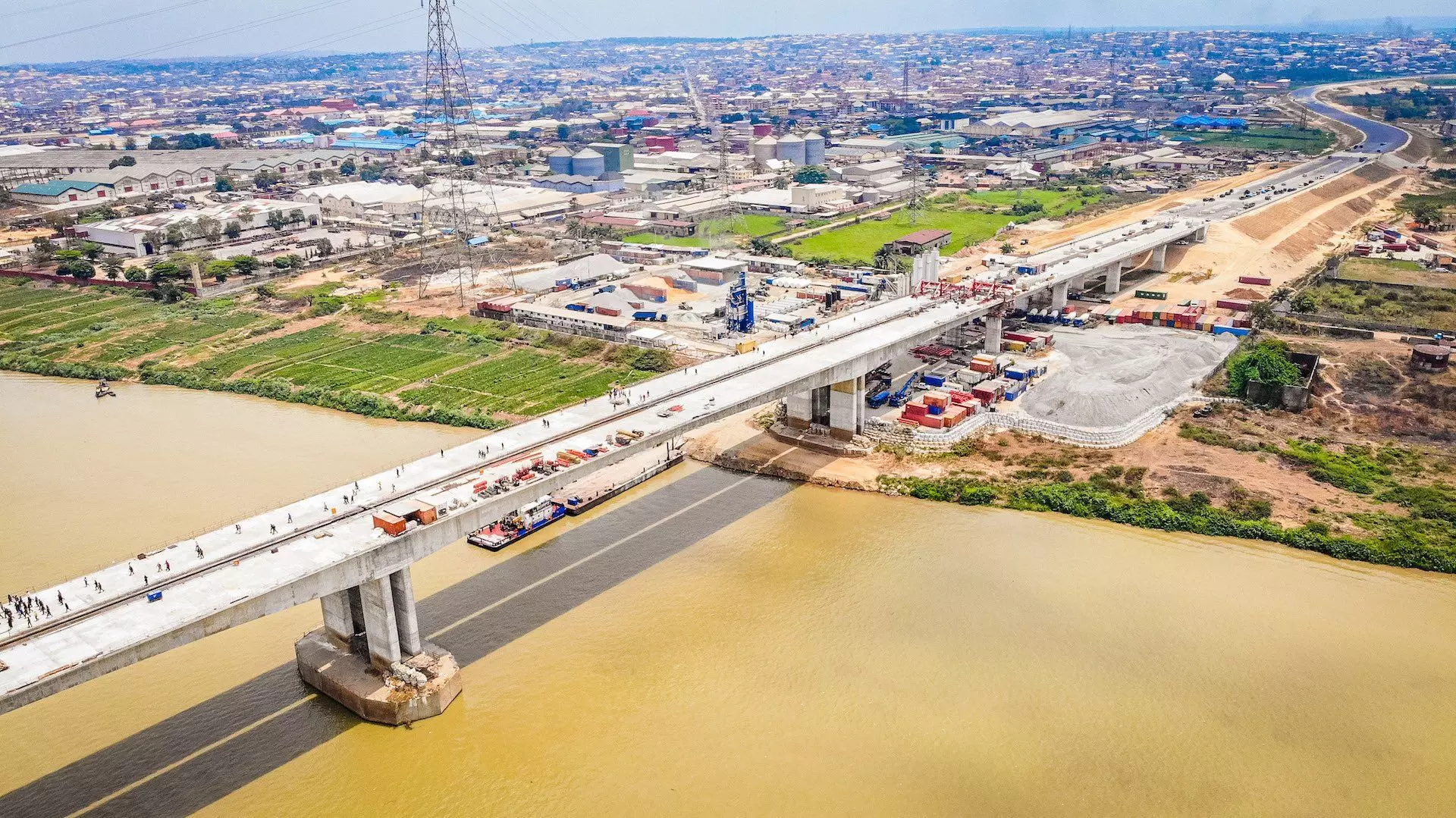- Home
- /
- Trending-News
- /
- Abuja-Kano Road, 2nd...
Abuja-Kano Road, 2nd Niger Bridge, Buhari's legacy –Group

Cleen Foundation, a Non-Governmental Organisation (NGO) says the reconstruction of Abuja-Kano Road and the actualisation of the 2nd Niger Bridge are part of the President Muhammadu Buhari’s legacies.
Mr Gad Peter, Executive Director of the foundation said this on Wednesday in Abuja at the Civil Society Organisations (CSOs) Roundtable dialogue on Asset Recovery in Nigeria, organised by the foundation.
Peter said that in February 2021, the foundation was appointed by the Federal Government and the U.S Government as an independent CSO to effectively monitor the implementation of the tripartite agreements.
He said that the monitoring was on the sharing, transfer, disposition, repatriation, management and utilisation of the forfeited assets being used for the various infrastructure development project in Nigeria.
“We appreciate the FG, the UK, the U.S governments and the Ministry of Justice for the partnership and opportunity that enables us to keep a close eye on the full utilization of the Abacha loot.
“The initial results of this monitoring exercise are promising and there is certainly room for improvements in the project implementation and the monitoring and these legacy projects would successfully reach their completion stages,” he said.
Juliet Ibekaku-Nwagwu, Adviser to the Office of the Attorney-General of the Federation on International Assets Recovery, said that the International assets recovered were highly beneficial to Nigeria and its people.
Ibekaku-Nwagwu said that the assets recovered since 2017 from the U.S, Switzerland, Balbwick of Jersey, Northern Ireland, had aided significant infrastructure developments which, when translated, would boost the nations productivity.
“When efforts are made to access this assets, there is always agreements to ensure that the assets are beneficial to Nigerians and as such every recovered assets is invested in developmental projects.
“Since we started the assets recovery in 2017, the Federal Government of Nigeria has signed agreements with Jurisdiction Agencies involved to monitor the usuage of every asset.
“Agreements were signed in the assets recovery from Switzerland, Worldbank and the Federal Republic of Nigeria in Dec 2017, also from the United States, Baldwick of Jersey and the Federal Republic of Nigeria in February 2020.
“There are tripartite agreements between jurisdiction agencies such as Switzerland, Ministry of Foreign Affairs, World Bank, Ministry of Justice, Social Investment Offices, and the Federal Ministry of Humanitarian Affairs and Disaster Managements,” she said.
She added: “In the Mohammed Sani Abacha assets recovery and the Northern Ireland in Aug. 2020, there was agreements between the Office of the Attorney-General of Nigeria, the Irish Police and the Attorney-General Department of Ireland.
“All this agreements are to ensure that the assets are utilised and accounted for and the disbursements are transparent and well audited and at the end every asset recovery projects is beneficial to Nigerians.”
She said that every asset recovery agreement process was subjected to four layers involving the Nigeria Sovereign Investment Authority (NSAI), Civil Societies/Third party monitoring, Independent Auditing and Public/Internal Audit, Financial narrative reports.
She said that those layers were with clear terms of references made to ensure that recovered assets were not misused by the government and were strictly beneficial to the citizens.
She said that the Nigerian government in spite of the huge cost of recovery, time efforts, provision of expertise in international laws and other international cooperation would not relent to ensure that all assets were recovered.
Ibekaku-Nwagwu said that other recovered assets, including the recovery of the late former governor of Bayelsa state, Diepreye Alamieyeseigha from 2017 to 2022, would also be beneficial in the rehabilitation of Primary Healthcare Centres.
Mr Ndukaku Okoronkwo, representative of the NSIA, said that the Presidential Infrastructure Development Fund (PIDF), inaugurated by President Muhammadu Buhari in 2017, was to capture major Infrastructure projects in Nigeria.
Okoronkwo said that the NSIA was responsible for the administration and management of funds disbursements for the various ongoing infrastructure projects across the country.
“Mr President said that each project must be monitored and fully executed before the end of his tenure and we can say that the various projects are almost at the finishing stages ready to be commissioned.
“We have the major projects such as the Abuja-Kano Road, the Lagos-Ibadan Expressway and the Second Niger Bridge which are at their finishing stages.
“The NSIA ensures that all contractors send in their reports through the Ministry of Works and Housing, certificates are issued, consultations are made, and the NSIA disburses funds, monitors and ensure no mistakes are made and every fund is accounted for,” he said.
He said that Buhari promised that all projects were fully completed before he left office and that the roads would be commissioned before he handed over to the next government.
Also, Mrs Obi Ekechere, representing the National Orientation Agency (NOA), said that the agency was working tirelessly to ensure that negative narratives about assets recovery was changed and Nigerians became informed on the usage of all assets.
“NOA is the map and mouthpiece of Nigeria and our focus areas remains the grassroots where we have robust relationships with the people and that is why we have our branches in all local governments across the country.
“We have been working and disseminating information on assets recovery and this is no exception as we would continue to enlighten Nigerians on the progress levels in each phase of recovery and its developmental impact in the country,” she said.




